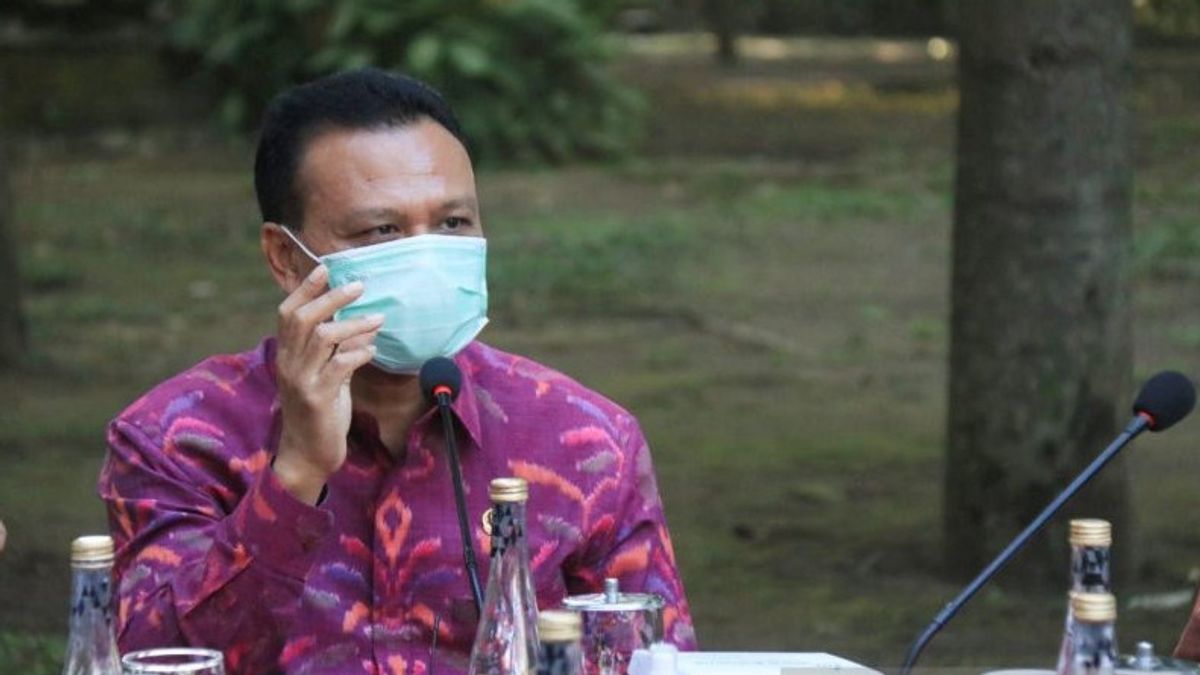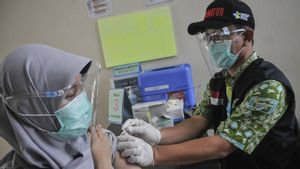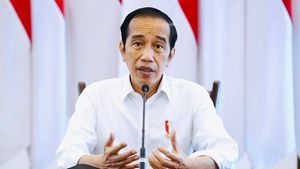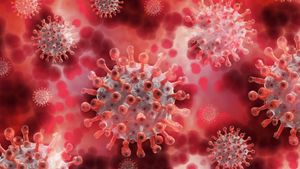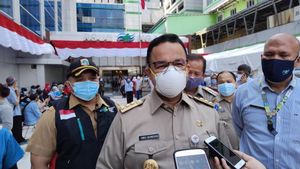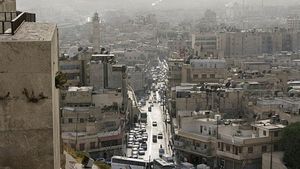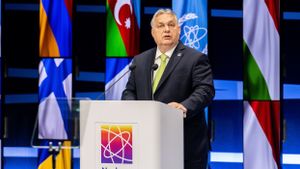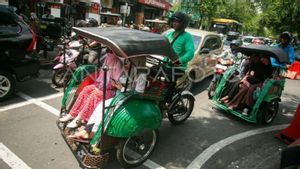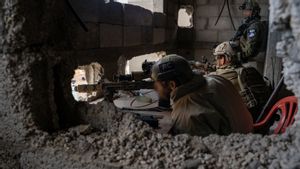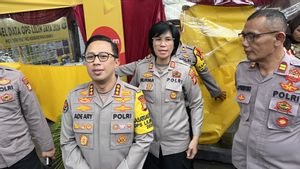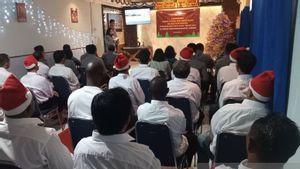DENPASAR - The Regional Secretary as well as the Daily Chair of the Bali COVID-19 Task Force, Dewa Made Indra, said that the plan to implement Emergency Community Activity Restrictions (PPKM) was not carried out in all parts of Indonesia.
According to him, the policy is adjusted to the development of COVID-19 cases in a region and is not generalized.
"The implementation of the Emergency PPKM is not general but case by case, region by region depending on the level of development of COVID-19, so it cannot be beaten evenly," said Indra at the Bali Governor's office, Wednesday, June 30.
Indra said, from the results of the Emergency PPKM meeting, it was only implemented in the red zone area. This is based on a virtual meeting held by the Coordinating Minister for Maritime Affairs and Investment and several regional heads related to Emergency PPKM, Tuesday, June 29.
From the meeting, Indra emphasized that Bali is not included in the red zone area and is included in the orange zone category, and will not implement Emergency PPKM.
"The orange zone (Bali) so we don't enter the Emergency PPKM. So let's continue to work in front of building public awareness and discipline", he added.
According to Indra, the Balinese have been inactive for a long time, 1.5 years. However, his party did not reject Emergency PPKM as a policy.
"That's not what he meant (to refuse), but if we can avoid it, let's avoid it. It's not that we don't take that policy, but that it's our duty to keep our territory from entering the red zone, don't let Bali enter the red zone", he said.
Indra said this policy was not only for COVID-19 but for living together, for a better community economy.
"We, continue to work disciplined, let's come to the vaccine site. So, we can move the economy, if possible there will be no more Covid-19 in Bali but this needs our collective struggle", said Indra.
Jokowi Decides on Java-Bali Emergency PPKM
President Joko Widodo (Jokowi) said the government would implement an Emergency Community Activity Restriction (PPKM) to suppress the spread of COVID-19 in Java and Bali.
There is also the reason for choosing the two islands for the implementation of Emergency PPKM because there are 44 cities and regencies in six provinces that have poor assessment scores. This is because the rate of transmission of COVID-19 is still quite high in the area.
He said this assessment was by the COVID-19 transmission rate indicators issued by the World Health Organization (WHO).
"Decided Emergency PPKM, especially Java and Bali. Because here 44 regencies and cities and six provinces have four assessment scores," said Jokowi when opening the VIII National Conference (Munas) of the Indonesian Chamber of Commerce and Industry (KADIN) in Kendari, Southeast Sulawesi, Wednesday, June 30.
Jokowi said that from several areas on the islands of Java and Bali, the transmission of COVID-19 was massive and evenly distributed to the RT and RW levels.
"An example of a map is in West Jakarta. Citizens Association and village affected by COVID-19 can see that it is like that, meaning that it is evenly distributed, so there must be a firm decision to resolve this problem", said Jokowi.
"Conditions like this must be conveyed as they are", he added.
SEE ALSO:
Proposed complete rules for the Java-Bali Emergency PPKM
First, office activities for the non-essential sector are required to implement 100 percent work from home (WFH). Second, essential sector offices apply 50 percent WFH and critical sectors can work from 100 percent office.
Third, all teaching and learning activities are carried out online. Fourth, activities at shopping centers/malls/trade centers are closed. Fifth, restaurants and restaurants only accept delivery/takeaway.
Sixth, the implementation of construction activities may operate 100 percent. Seventh, places of worship are temporarily closed. Eighth, public facilities such as public areas, public parks, public tourist attractions, and other public areas are temporarily closed.
Ninth, arts and culture activities, sports, and social activities such as art locations, culture, sports facilities, and social activities that can cause crowds and crowds are temporarily closed.
Tenth, public transportation such as mass transportation to conventional and online taxis is enforced with a maximum capacity setting of 70 percent.
Eleventh, the wedding reception was attended by a maximum of 30 people by implementing stricter health protocols and not allowed to eat at the reception.
Twelfth, travelers who use long-distance transportation modes must show a vaccine card for at least the first dose of vaccine and H-2 PCR for aircraft as well as H-1 antigen for other long-distance transportation modes.
Thirteenth, Civil Service Police Unit, TNI, and National Police carry out strict supervision of the implementation of tightening community activities. Fourteenth, 3T reinforcement. Fifteenth, achieving the vaccination target of 70 percent of the total population in priority cities/districts no later than August 2021.
The English, Chinese, Japanese, Arabic, and French versions are automatically generated by the AI. So there may still be inaccuracies in translating, please always see Indonesian as our main language. (system supported by DigitalSiber.id)
